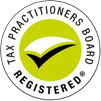These concessions recognize that if an employee is required to live away from their usual place of residence, they will incur additional expenses which are fundamentally private or domestic in nature. The law permits employers to pay a tax free benefit, known as Living Away From Home Allowance (LAFHA), to cover these additional expenses. A LAFHA is usually made up of a reasonable accommodation component and a reasonable food component. Other expenses, such as schooling costs, can also be packaged.
A living away from home allowance can be paid where the employee has moved and taken up temporary residence away from his or her usual place of residence so as to be able to carry out employment duties for a time at the new (but temporary) workplace.
The Employee Must Have A “Usual Place Of Residence”
In order for the allowance to be tax free, the employee must have a usual place of residence to begin with. Although “usual place of residence” is not defined, the legislation defines “place of residence” to mean:
- a place at which a person resides; or
- a place at which the person has sleeping accommodation.
The Australian Tax Office has stated that “the question whether an employee is living away from his or her usual place of residence normally involves a choice between two places of residence, i.e. the place where the employee is living at the time or some other place. A person is regarded as living away from a usual place of residence if, but for having to change residence in order to work temporarily for their employer at another locality, the employee would have continued to live at the former place.”
A relevant factor in determining this is whether there is an intention or expectation of the employee returning to live at the former place of residence on cessation of work at the temporary job locality.
The Period That LAFHA Can Be Paid
The legislation provides for NO maximum time for a LAFHA to be paid. In 1995 the Government proposed to amend the law to impose the following time limits:
- For expatriates – 4 years
- For remote areas – 2 years; and
- For all other situations – 1 year
These limits were NOT enacted. As such, a LAFHA can be paid for as long as the basic conditions for its existence are in place.
However, if it becomes clear that there is no real intention to return to the previous location, the facts could point to a conclusion that the employee has now changed their usual place of residence.
Changing jobs does not necessarily mean that LAFHA benefits stop. As long as the job is not open ended, a LAFHA can still be paid. Proof of this may be that one’s visa requires one to return home.
The Exempt Accommodation Component
The exempt accommodation component is that part of the LAFHA which is in the nature of compensation for additional expenses that might reasonably be incurred by the employee in respect of the lease of a unit of accommodation for eligible family members. This amount is only exempt if the employee gives the employer a declaration in the approved form which sets out:
- the employee’s usual place of residence during the period covered by the allowance; and
- the place at which the employee actually resided during the allowance period.
The term “in respect of accommodation” does not include the reimbursement or payment by the employer of mortgage expenses in respect of a house purchased by the employee and used as a dwelling by the employee and family members while temporarily residing in Australia.
What amount might reasonably be incurred on accommodation costs? – this is a question of fact to be determined based on the circumstances. It is likely that the amount which is reasonable would be an amount that approximates the amount which is actually incurred for the accommodation in fact used by the employee.
The Exempt Food Component
The exempt food component is that part of the LAFHA which is in the nature of compensation to the employee for additional expenses that might reasonably be incurred in respect of food for the employee and family while living away from home.
Once again, this amount is only exempt if the employee gives the employer a declaration in the approved form.
The exempt food component for expatriate employees working in Australia can be determined by guidelines issued by the Australian Tax Office from time to time. The reasonable food components for expatriate employees for the 2008/09 Fringe Benefits Tax year which ends in March 2009 are as follows:
| Number of persons | Per week ($) |
| One adult | 211 |
| Two adults | 338 |
| Three adults | 379 |
| Two adults and one or two children | 379 |
| Two adults and three children | 442 |




